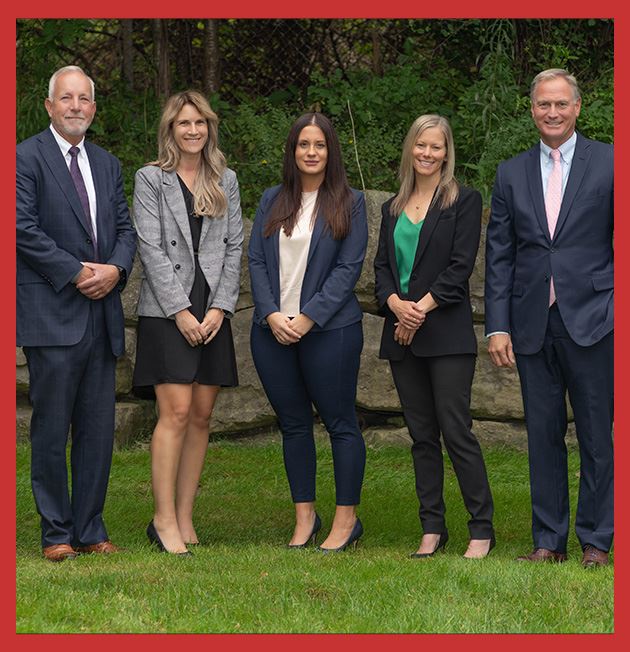
Water Contamination at Camp Lejeune
Chemicals Linked to Cancer, Parkinson’s Disease, & birth defects
Military personnel who put country before self were exposed to toxic chemicals while training at U.S. Marine Corps Base Camp Lejeune in North Carolina.
Investigators found that drinking water at the military base was contaminated with volatile organic compounds and 70 other highly toxic substances. Despite knowing about the pollutants, the government took no action. Contaminated wells were finally shut down in 1985.
If you or a loved one lived, worked, or served at Camp Lejeune for at least 30 days between Aug. 1, 1953, and Dec. 31, 1987, call our attorneys at Faraci Lange, LLP. You might be eligible for compensation for injuries or illnesses incurred from your time on the base. This includes veterans, reservists, guardsmen, civilian workers, and family members (including children who were exposed in utero before birth).
Those who are suffering or have suffered an illness must file a claim within two years of the date that the Camp Lejeune Justice Act is signed into law. Anyone who develops a disease or other illness in the future will have two years (statute of limitations) from the date of discovery to file a claim.
Nearly one million Marines and their families stationed at the base were exposed to harmful chemicals through the water during this timeframe.
Contact us online or call (888) 997-4110 to schedule a free and confidential consultation.
Contaminated Water Was Used Throughout the Camp
Water used for drinking, cooking, and bathing in enlisted family housing, barracks, schools, base hospitals, recreational areas, and administrative offices could have been contaminated.
The following chemicals were among those identified in the water at the North Carolina base:
- Trichloroethylene (TCE)
- Tetrachloroethylene (PCE)
- Vinyl Chloride (VC)
- Benzene
The following diseases, illnesses, and other health challenges have been linked to the water at Camp Lejeune:
- Bladder Cancer
- Breast Cancer
- Cervical Cancer
- Esophageal Cancer
- Kidney Cancer
- Liver Cancer
- Lung Cancer
- Ovarian Cancer
- Stomach Cancer
- Birth Defects and Birth Injuries
- Miscarriage
- Multiple Myeloma and other Myelodysplastic Syndromes
- Adult Leukemia
- Aplastic Anemia and other Bone Marrow Conditions
- Parkinson’s Disease
- Renal Toxicity
- Neurobehavioral Effects
- Death
Toxic Substances Discovered in 1982
Camp Lejeune was established in 1942 in Jacksonville, NC. The base is used for marine training and amphibious assault training.
According to the Agency for Toxic Substances and Disease Registry, the Tarawa Terrace and Hadnot Point water treatment facilities at Camp Lejeune distributed dangerously contaminated water within years of operation. Hadnot Point was affected by chemicals by August 1953. Tarawa Terrace processed toxic water by November 1957. Operations at the Holcomb Boulevard Water System began in 1972. While its water was generally safe, the system was supplemented with water from Hadnot.
In 1982, contaminants trichloroethylene and tetrachloroethylene were detected at levels above the standards for safe drinking water established by the Environment Protection Agency. The dangerous Tarawa Terrace and Hadnot Point water systems were shut down in 1985 but removing the contaminants took two years.
Camp Lejeune Justice Act Allows Lawsuits
The Camp Lejeune Justice Act of 2022 was approved by Congress as part of the PACT (Promise to Address Comprehensive Toxics) Act on August 2, 2022. This new legislation makes it possible for people affected by contaminated water at Camp Lejeune to file lawsuits against the federal government.
In addition to a civil lawsuit, veterans and family members may be eligible for VA disability benefits and health coverage.
Faraci Lange, LLP is committed to representing service members and their families who have suffered medically recognized injuries from toxic chemical exposure at Camp Lejeune. We have experienced tort attorneys who can help you pursue the compensation you deserve.
We offer free consultations with preliminary case evaluations. Contact us online or call (888) 997-4110.

Why Choose Faraci Lange, LLP?
-
Over 55 Years of Experience
-
11 Attorneys Listed in Best Lawyers in America®
-
3 Attorneys Are Part of the American College of Trial Lawyers
-
Focusing Solely on Personal Injury Cases
-
Compassionately Helping Injured Victims in Western NY Since 1968
"Very helpful, considerate, and compassionate!"We would highly recommend Faraci Lange and Matthew and his staff. Everyone was very helpful, considerate, and compassionate! ...
- Carol

